Everybody wants to keep their skin healthy, smooth, and radiant. Unfortunately, we all inevitably lose skin elasticity over time for a variety of reasons. Whether it's due to age, environmental factors, or harsh skincare products, you can still reverse the damage and maintain a firm, supple, and glowing complexion.
This article explains what triggers loss of skin elasticity and how to restore it effectively.
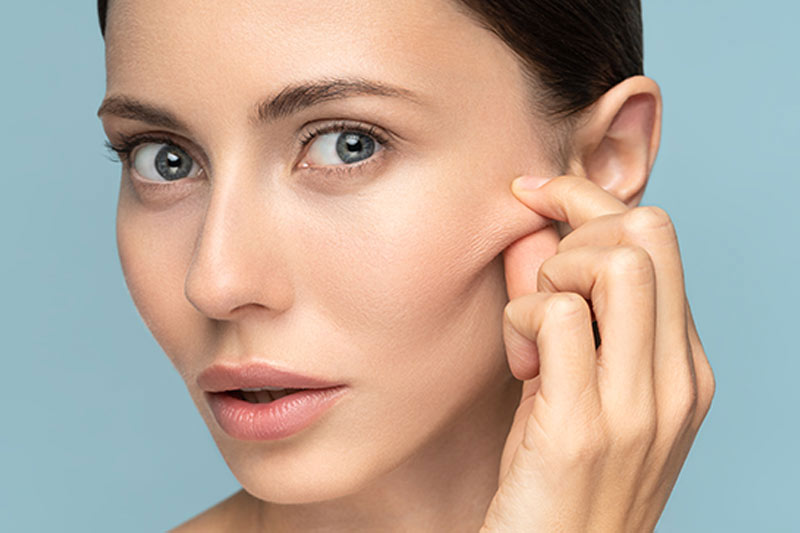
What Are the Signs of Loss of Skin Elasticity?
You may notice that your skin does not “bounce back” quickly after being gently pinched. The neck, chest, upper arms, and under-eye areas are especially prone to sagging.
Here are the signs that indicate that the skin has lost its natural firmness:
- Fine lines and creases
- Wrinkles and folds
- Facial volume loss
- Under-eye circles
- Liver spots or age spots
- Thinning skin
- Loose or droopy skin
- Crepey texture
- Dryness
- Dull or tired-looking complexion
- Enlarged pores
- Uneven texture
- Slower wound healing
- Less defined facial contours
Loss of Skin Elasticity Causes
Skin loses its elasticity for a variety of reasons, some of which are under our control. Here are the 15 main reasons for the loss of skin elasticity.
1. Aging
Aging is a natural process we cannot avoid. Over time, cell renewal slows, and we stop producing enough collagen and elastin, the two proteins responsible for skin elasticity. Luckily, there are ways to prevent premature aging and preserve some of the skin’s firmness and glow.
Note: Learn about the seven signs of aging and when to start using anti-aging products.
2. Sun Exposure and Tanning
The sun’s ultraviolet (UV) rays are a major cause of premature skin aging and can contribute to serious conditions like skin cancer. UV radiation from both the sun and tanning beds damages the DNA in skin cells and breaks down collagen and elastin fibers.
As a result, the skin becomes crepey, wrinkled, and rough. To prevent further damage and keep your skin healthy and safe, apply a broad-spectrum, mineral-based sunscreen daily.
Note: Find out how to choose a sunscreen to protect your skin.
3. Smoking
Nicotine constricts blood vessels, reducing oxygen and nutrient delivery to skin cells. Furthermore, it inhibits the activity of fibroblasts, the cells responsible for collagen production, and studies show that it also compromises the protective skin barrier.
Smokers are more prone to developing early fine lines and wrinkles because their skin gets dry, thin, and crinkly due to collagen deficiency.
4. Insufficient Sleep
Chronic sleep deprivation disrupts collagen production and inhibits the skin’s natural self-repair process, weakening its structure and elasticity. Poor sleep habits slowly break down the outer barrier, resulting in skin that is thin, pale, and lackluster.
Improving your sleep is not only essential for beauty but also has a beneficial effect on your overall physical and mental wellbeing.
Note: Learn how hormones affect sleep quality and effective ways to address this problem.
5. Dehydration
Water is essential for maintaining healthy, resilient skin. Inadequate hydration, caused by low fluid intake, frequent urination, hormonal sweating, or high alcohol and caffeine consumption, can lead to dull, dry, and flaky skin.
Drinking enough water flushes out toxins, improves circulation, and enhances oxygen and nutrient delivery, keeping your skin firm, plump, and less prone to puffiness.
6. Poor Diet
A balanced, anti-inflammatory diet rich in essential micronutrients supports skin health and preserves its natural elasticity. Vitamin and mineral deficiencies can lead to a dull complexion, sagging skin, and a rough texture.
Diets high in refined carbohydrates cause sugar spikes that trigger glycation, a process where excess glucose binds to collagen and elastin, making them rigid and the skin less elastic. Glycation also increases skin inflammation, which can aggravate acne, eczema, and psoriasis.
Note: Discover the seven vitamins that can help tighten loose skin and learn how to incorporate them into your diet.
7. Hormonal Shifts
Hormonal fluctuations impact skin quality, causing hormonal acne, dry skin, and loss of elasticity. Research shows that estrogen decline makes the skin thin, wrinkly, and more prone to damage by free radicals. When estrogen levels drop during menopause or after childbirth, the elastin fibers that keep the skin firm and supple can weaken, resulting in dryness, fine lines, and wrinkles.
8. Inflammatory Medical Conditions
Autoimmune disorders and chronic medical conditions increase inflammation in the body, affecting the structure and function of collagen, elastin, and hyaluronic acid in the dermis. This inflammation-driven premature aging, or “inflammaging,” can lead to wrinkled, dry, and sagging skin.
Note: Discover practical ways to reduce inflammation and regain skin elasticity.
9. Inappropriate Skincare Products
Using skincare products with harsh or irritating ingredients, or overusing exfoliants, retinoids, and cleansers, can seriously damage your skin. Choose products that are free from harsh additives like alcohol, parabens, and sulfates. Everyone’s skin reacts differently, so always read labels carefully and perform a patch test before trying a new product to minimize the risk of adverse reactions.
Note: Read our ultimate skin care guide for recommendations tailored for each skin type.
10. Environmental Pollutants
Skin pollution accelerates aging, increases sensitivity, and weakens the skin barrier. Environmental toxins, including air pollution, heavy metals, and cigarette smoke, cause oxidative stress by generating free radicals that break down collagen and damage skin cells. The result is excessive dryness, dullness, and rapid moisture loss that compromise skin health and elasticity.
Note: Read our guide to anti-pollution skin care for more product recommendations and tips.
11. Weight Oscillations
Excess weight stretches the skin, causing it to become loose and saggy when a few pounds are lost. This effect is more pronounced when weight loss is sudden or rapid, as the underlying fat tissue that supports the skin diminishes, leaving it soft, thin, and deflated. Over time, the skin may lose its natural ability to retract and regain firmness, particularly around the abdomen, arms, thighs, and face.
Note: If you are struggling to lose weight, consider medically supervised weight loss programs.
12. Chronic Stress
Chronic stress elevates cortisol levels, impairing the skin’s ability to retain water and causing dryness, dullness, and a crepey texture. Adrenaline and cortisol spikes can also increase sweating, leading to dehydration and itchiness. Stress can also weaken the skin’s protective barrier and reduce its resilience, exacerbating conditions such as atopic dermatitis (eczema).
Note: Read about the connection between stress and skin and learn how to lower cortisol naturally.
13. Lack of Exercise
Regular physical activity improves circulation, keeping the skin well-oxygenated, plump, and firm. Lack of exercise reduces blood flow, slows down cell renewal and collagen production, leading to skin that is insufficiently nourished, pale, and saggy. Furthermore, underused muscles lose tone over time and can no longer support the skin’s structure and maintain its firmness.
14. Alcohol
Frequent and excessive alcohol consumption dehydrates the body and causes toxin buildup, leading to a gradual loss of skin elasticity. As a diuretic, alcohol triggers frequent urination, depleting the body of water and essential nutrients necessary for skin health, elasticity, and firmness.
Skin experts recommend moderate alcohol intake or abstaining completely to preserve skin hydration and elasticity.
15. Genetics
While you cannot change your genetic makeup, you can certainly learn how to make the most of it. Understanding your skin type and genetic predispositions, such as wrinkles, acne, and dry skin, can help you take preventative steps and delay premature skin aging.
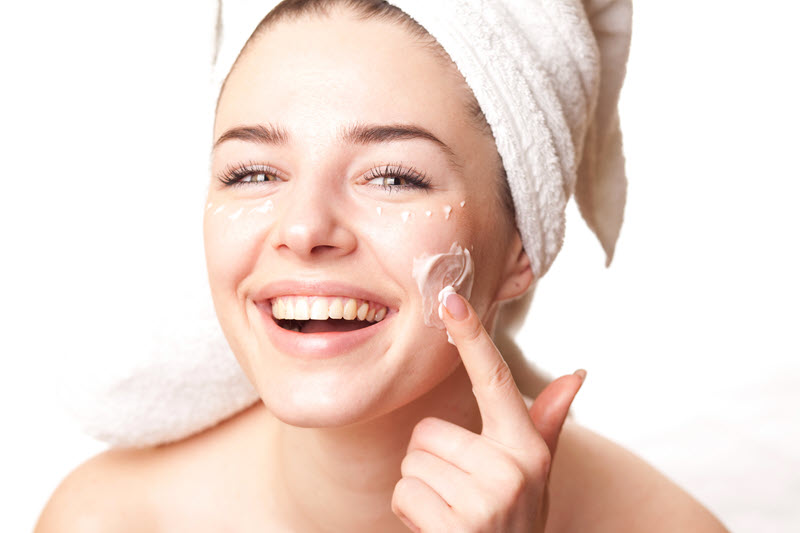
Can You Regain Lost Skin Elasticity?
There are many effective methods to help you regain lost elasticity, whether you are looking to tighten your arms, legs, buttocks, face, or other body parts.
Here are our recommendations for restoring skin firmness and resilience.
Healthy Diet
A balanced, nutritious diet helps the skin stay fresh, tight, and young-looking. Incorporate foods rich in antioxidants, vitamins, minerals, and collagen-boosting ingredients into your diet.
The following foods promote collagen and skin firmness:
- Leafy greens
- Bone broth
- Nuts
- Seeds (e.g., chia seeds
- Fatty fish (e.g., salmon)
- Citrus fruits
- Protein-rich foods (e.g., eggs, fish, meat, soy products)
Exercise and Massage
Movement helps flush out toxins from the body by promoting lymphatic drainage and improving blood circulation. To keep your skin healthy, toned, and elastic, aim for regular physical activity such as brisk walking, yoga, Pilates, and low-intensity cardio.
In addition to exercise, lymphatic drainage massage can further tone up the skin by reducing fluid retention, improving lymph flow, and minimizing puffiness. It may also improve the appearance of cellulite with regular maintenance.
Topical Products
You can tailor your skincare routine to boost skin firmness by checking the label for ingredients that reverse UV damage, strengthen the skin barrier, and provide deep hydration.
Here are products to include for more elasticity:
- Topical amino acids – Amino acids are the building blocks of proteins, including keratins, collagen, and elastin. Products enriched with copper peptides (short chains of amino acids with copper ions) preserve the skin’s ability to stretch.
- Antioxidant skin care – Antioxidants, such as resveratrol and niacinamide, neutralize free radical damage, reduce inflammation, increase hydration, and stimulate collagen and elastin production.
- Anti-aging products – These products are specially formulated to reverse age-related damage, rejuvenate the skin, and remove age spots; examples include retinol serums and creams, hyaluronic acid, niacinamide, peptides, and ceramides.
- Fatty acids – Omega-3s, omega-6s (linoleic acid), and omega-9s (oleic acid) prevent moisture loss, strengthen the barrier, and replenish lost lipids to alleviate skin aging.
- Sunscreen – Mineral-based, broad-spectrum sunscreen minimizes the damage from UVA and UVB radiation, preserving the outer skin layer and delaying skin aging.
Note: Discover the best moisturizers for aging skin and read about the benefits of avocado oil.
Our skin experts recommend the following skincare products to boost elasticity:
Desert Vibe Serum – Moisture Boosting Serum
This moisture-boosting serum supports immune function, strengthens the protective barrier, and stimulates collagen regeneration. The stress-relieving, anti-microbial blend of beta-glucan, Centella asiatica, neurophroline, and prickly pear leaves the skin radiant, smooth, and deeply hydrated.
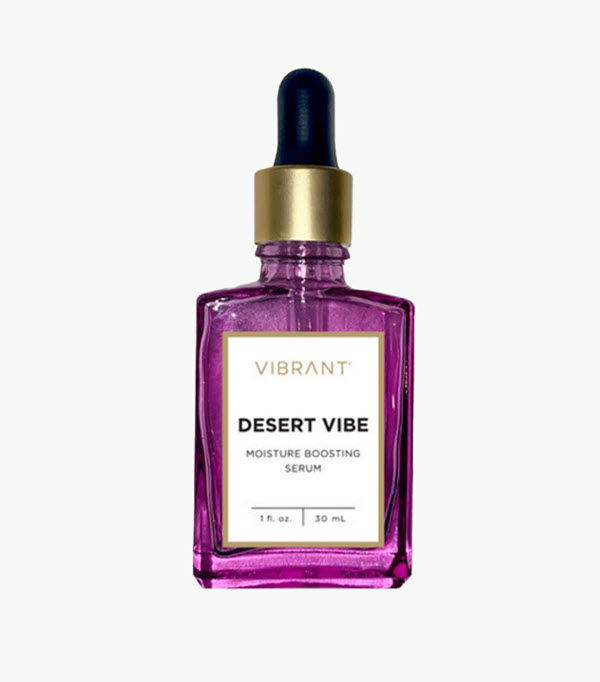
Vibrant Restore – Clarifying Moisturizer for Normal to Oily Skin
This nourishing, biome-friendly moisturizer is enriched with potent prebiotics and postbiotics that preserve healthy skin flora and prevent moisture loss.
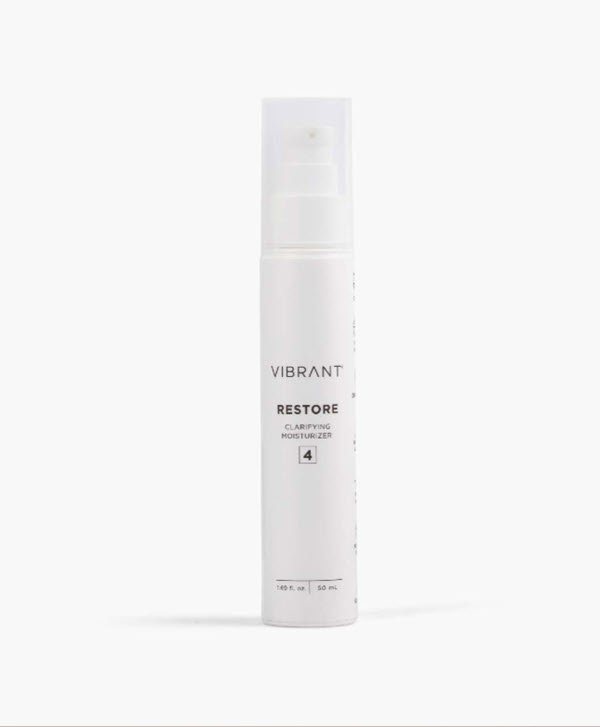
Osmosis MD StemFactor Growth Factor Serum
Known as the “fountain of youth,” this rejuvenating serum uses innovative ingredients to feed stem cells and fibroblasts and promote skin cell renewal, regeneration, and repair. Its clinically-proven anti-aging technology delivers lasting skin-tightening effects and a youthful complexion.
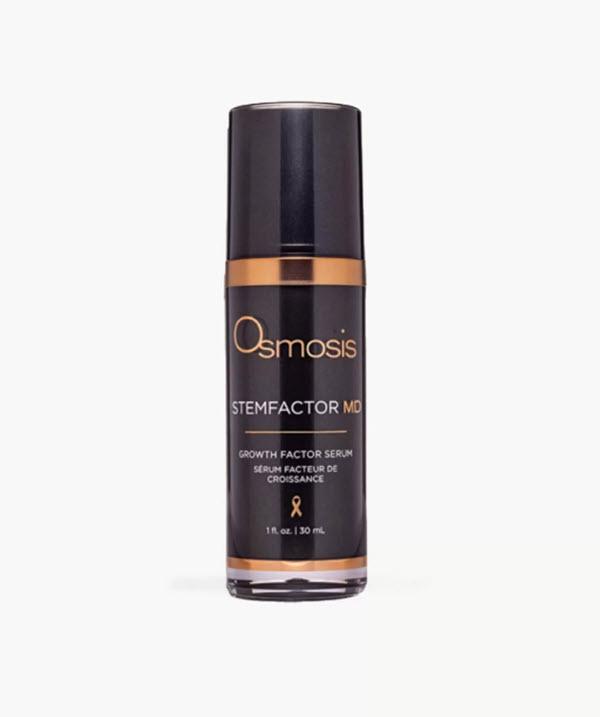
Non-Invasive Cosmetic Treatments
If you do not wish to undergo surgery for tighter skin, you can opt for a safe, minimally invasive anti-aging cosmetic treatment.
The following treatments can help you regain lost elasticity:
- PDO threading – Instantly lifts sagging skin and rebuilds lost collagen.
- Preventative Botox – Neurotoxin injections can be used as a preventative measure against early wrinkles, sagginess, and skin laxity.
- Dermal fillers – Restore lost volume, tighten loose skin, and stimulate collagen production.
- Sofwave – A non-invasive ultrasound technology that improves skin laxity by stimulating collagen and elastin production in the mid-dermal layer, delivering instant lifting effects.
- Chemical peels – The removal of the outer skin layer triggers skin remodeling and cell renewal, resulting in a firmer, tighter, and softer texture.
- Laser treatments – Laser resurfacing improves skin laxity through controlled micro-injuries that stimulate skin cell renewal and collagen and elastin production.
- Microneedling with PRP – Stimulates collagen while enriching the skin with platelets, growth factors, and cytokines that boost skin rejuvenation.
Our skin wellness experts at Vibrant Skin offer all the cosmetic treatments mentioned above.
IV Therapy
Intravenous (IV) therapy offers multiple health benefits, including restoring hydration, balancing the skin’s pH, and replenishing lost electrolytes. It also delivers a potent blend of high-dose antioxidants such as vitamins C, B, and D, which enhance skin immunity, reduce inflammation, reinforce the barrier, and promote a healthy, radiant complexion.
Nutritional Supplements
Dietary supplements can improve skin quality and slow down premature aging, increasing skin firmness and suppleness.
Our skin experts recommend the following skin-enhancing supplements:
Vibrant Collagen
Vibrant Collagen contains a unique blend of collagen peptides that improve the quality of skin, hair, and nails. Its science-backed formula promotes body collagen turnover and renewal, improving bone strength, joint health, and skin elasticity.
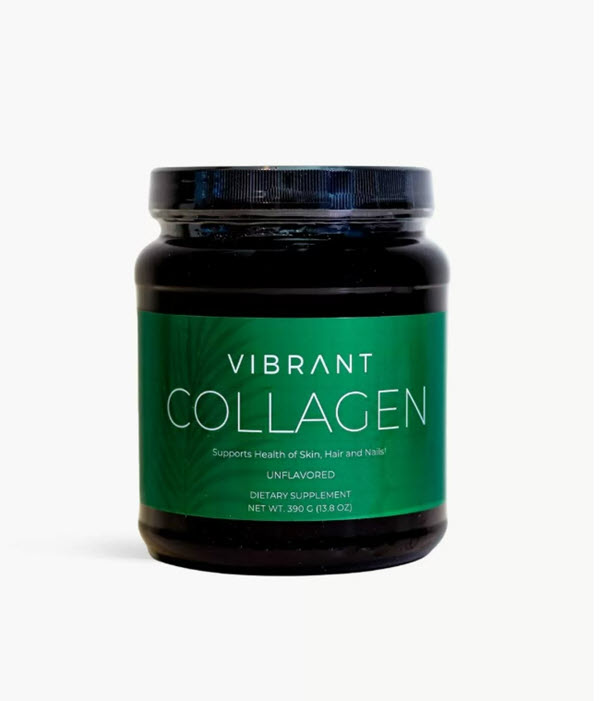
Osmosis Wellness Elevate
Elevate offers a variety of health benefits for the brain, muscles, libido, and skin. Formerly known as Collagen Activator, this supplement promotes collagen and elastin synthesis to achieve a radiant, healthy complexion.
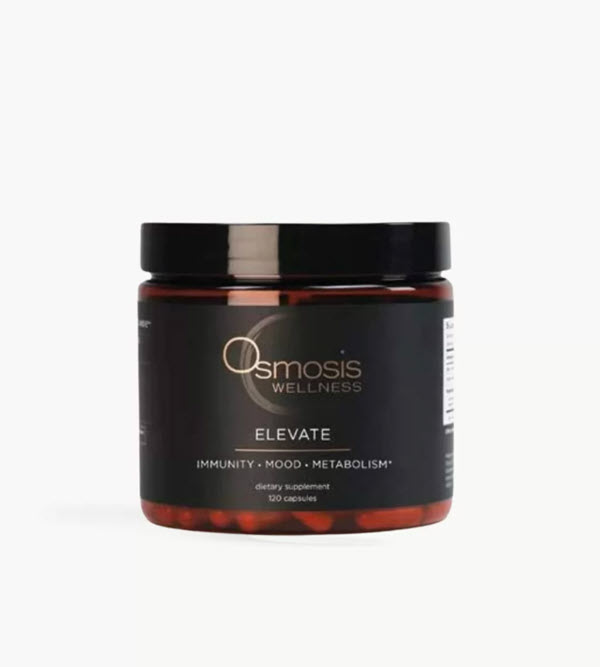
Vibrant Skin Brilliance
Its potent antioxidant formula is enriched with glutathione, which protects vulnerable DNA from damage, promotes detoxification from dietary and environmental free radicals, and brightens the complexion.
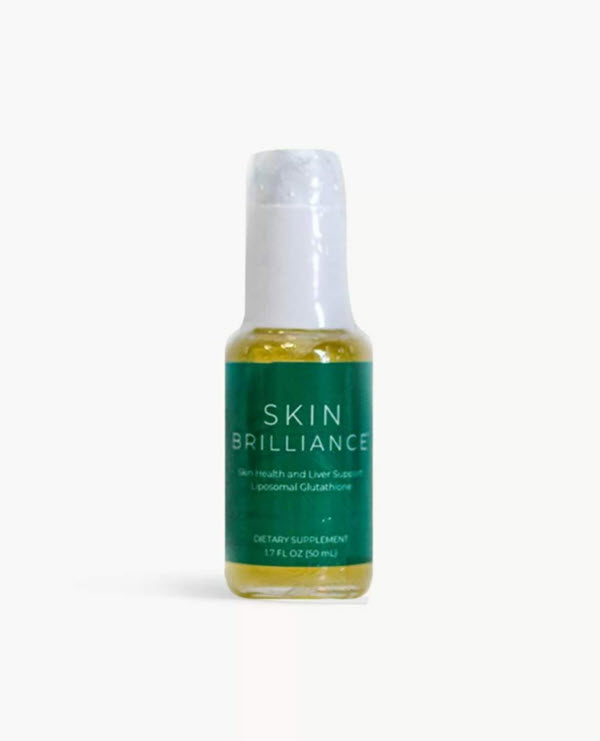
Osmosis MD Skin Defense
Another way to support the health of your skin is with Osmosis MD Skin Defense, a detox supplement aimed at removing heavy metals, pesticides, plastics, and food preservatives from the body.
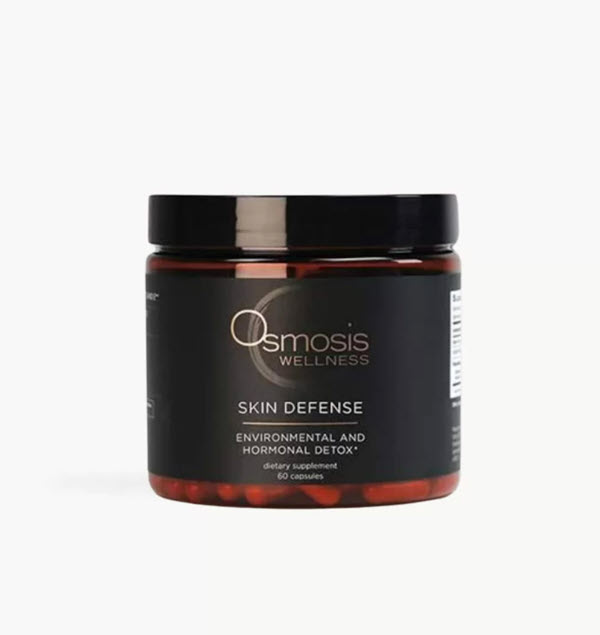
Hormone Replacement Therapy
Anti-aging hormone therapy can alleviate skin inflammation, excessive dryness, and other discomfort if the underlying medical cause for skin changes is hormonal shifts. Hormone replacement therapies such as BHRT are comprehensive, medically supervised, and can help reverse aging signs caused by low estrogen and other hormonal fluctuations.
Skin Detox
A skin detox helps combat environmental damage by deeply cleansing built-up toxins, dirt, and pollutants. It can tighten the skin, smooth its texture, and stimulate collagen and elastin production, reducing signs of premature aging.
Note: We recommend Vibrant Cinnamon Coffee Scrub to stimulate circulation, improve skin texture, and hydrate the skin.
Loss of Skin Elasticity FAQ
If you still have questions or concerns about skin elasticity and how to restore it, take a look at the most frequently asked questions below.
At What Age Does Loss of Skin Elasticity Occur?
The skin starts aging in the mid-twenties when fine lines and creases first appear. However, loss of elasticity typically starts in the thirties as collagen and elastin production slows, becoming more pronounced in the forties and fifties.
Keep in mind that visible signs of aging vary from person to person, depending on genetics, skincare habits, and lifestyle factors such as smoking, alcohol consumption, and diet.
Is It Possible to Prevent Loss of Skin Elasticity?
You cannot prevent loss of skin elasticity, but you can delay it with proper nutrition, supplements, skincare routine, and cosmetic treatments.
Which Vitamins Improve Elasticity?
Premature skin laxity can result from a vitamin deficiency. To improve skin quality and make it more supple, incorporate vitamin-rich foods into your diet, and consider supplementation.
These seven vitamins help preserve skin moisture, pH balance, and firmness:
- Vitamin A – Stimulates collagen production and cell turnover.
- Vitamin B – Prevents dryness by supporting moisture retention.
- Vitamin C – Promotes collagen synthesis and reduces oxidative damage.
- Vitamin D – Supports skin cell growth and repair.
- Vitamin E – Strengthens the skin’s lipid barrier and minimizes oxidative stress.
Conclusion
While loss of skin elasticity is inevitable, the good news is that you can slow down the process and minimize the adverse effects. Changing your skincare routine and incorporating top-quality products and treatments can go a long way in rebuilding lost collagen.
Contact our skin experts at Vibrant Skin Bar for more information about improving skin quality and preserving a youthful appearance.


